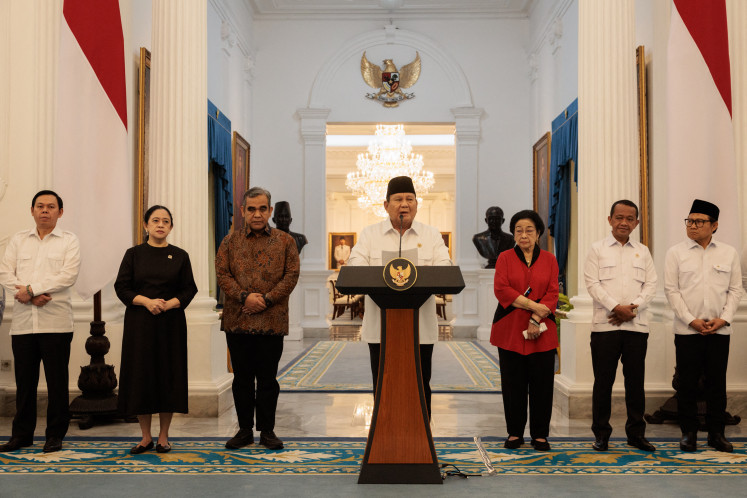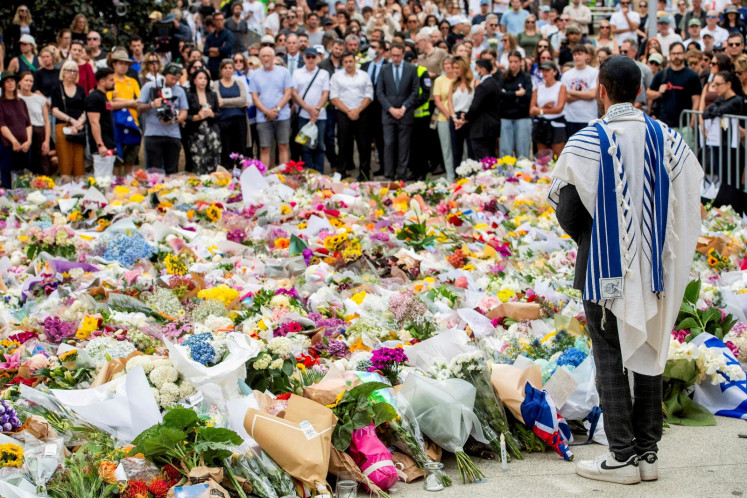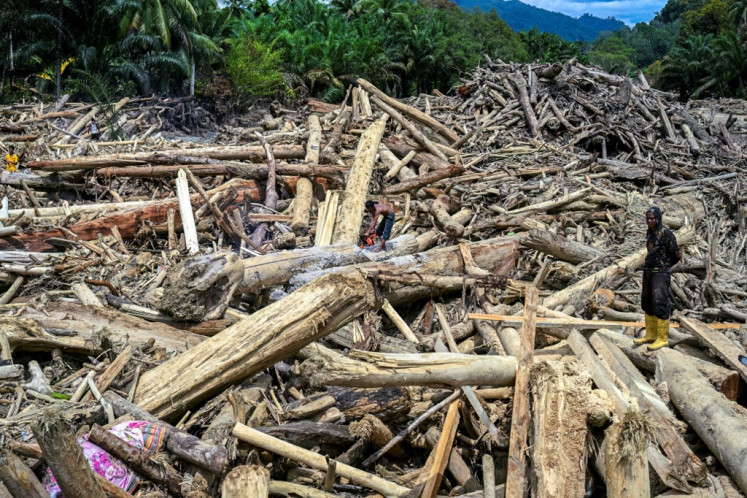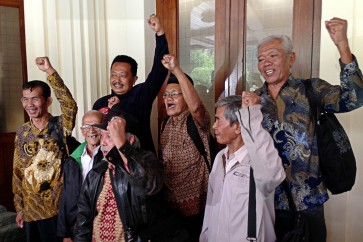Popular Reads
Top Results
Can't find what you're looking for?
View all search resultsPopular Reads
Top Results
Can't find what you're looking for?
View all search resultsJustice for post-genocide reconciliation?
Amid growing economic expectations, human rights cases suffer under what has been termed “the institutionalization of impunity.”
Change text size
Gift Premium Articles
to Anyone
 Members of the 1965 Murder Victims Research Foundation (YPKP 65) reported their findings of 122 mass graves across Java and Sumatra of the 1965 mass killings in a meeting with Coordinating Political, Legal and Security Affairs Minister Mahfud M.D. on Monday. The Government plans to form a team to verify the graves of the mass killing victims. (JP/Viriya Paramita Singgih)
Members of the 1965 Murder Victims Research Foundation (YPKP 65) reported their findings of 122 mass graves across Java and Sumatra of the 1965 mass killings in a meeting with Coordinating Political, Legal and Security Affairs Minister Mahfud M.D. on Monday. The Government plans to form a team to verify the graves of the mass killing victims. (JP/Viriya Paramita Singgih)
"We are targeted human beings!" Pak Djuoro, a 60-year-old man, son of a left-wing trade unionist in Brebes, Central Java, told me in 2015. "I am unemployed because of my father’s status. Soon my children and grandchildren will suffer a similar fate. It goes on like that!"
Djuoro cried angrily and desperately. The political stigma against him was hereditary. The mass killings and disappearance of those in the mid-1960s remain chronicled in the memories of many like him.
President Joko “Jokowi” Widodo's acknowledgment of the great tragedy will not change much of their fate. Last week, the President expressed "deep regret" over the 1965-1966 mass killing and 11 other past atrocities. No mea culpa, no apology.
The commission that will investigate the crimes against humanity said the cases would be subjected to judicial process or a so-called "non-judicial" one, a sort of truth and reconciliation process.
The decision applies to the gross human rights violations that took place during and after Soeharto's rule, from the mass killings in 1965-66 and in 1973-1975 at Soeharto's behest, the kidnapping of activists led by Lt. Gen. Prabowo Subianto’s men just before the fall of Soeharto, the Trisakti killings, the Chinese pogrom in May 1998, the killings of Muslim dukun (soothsayers) in East Java in 1999, the attack on Muslim radicals in Lampung and some atrocities during the conflicts in restive provinces of Aceh and Papua.
Significantly, before handing over the report to the President, the commission held a special meeting in October 2022 with the Pepabri, a powerful body of retired military officers. In doing so, they were very concerned. Indeed, some retired generals asked with a dismissive tone whether the investigators would point their finger to the culprits and whether those who fought to defend the unitary state would also be tried. The latter refers to the soldiers involved in the atrocities during the wars in Aceh and Papua. The message is clear: They will reject the state's apology and therefore there is no trial for those involved.
East Timor, now Timor Leste, was not mentioned at all. The commission led by experienced diplomat Makarim Wibisono includes Lt. Gen. (ret) Kiki Syahnakri, the man who knows East Timor well and speaks the language, who had to withdraw from the Indonesian army after the bloody 1999 referendum. The militia violence during the period, under the authority of Gen. Wiranto and an interdepartmental body led by Gen. Feisal Tanjung, has never been fully tried. The issue ended with a treaty of friendship with the new state of Timor Leste (the Timor Leste-Indonesia Commission of Truth and Friendship 2008).


















